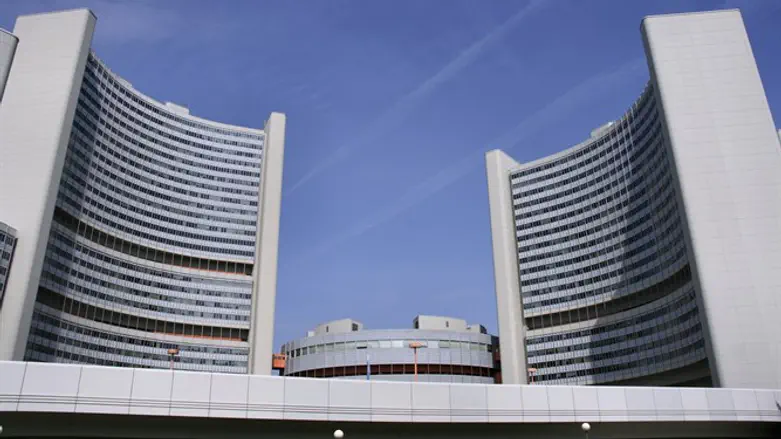
Iran has kept to a nuclear deal it agreed with six world powers last year limiting its stockpiles of substances that could be used to make atomic weapons, according to a report by the UN nuclear agency released Thursday and seen by the Reuters news agency.
The confidential report by the International Atomic Energy Agency (IAEA) did not point to any violations in Tehran's observance of the deal.
"Throughout the reporting period, Iran had no more than 130 metric tons of heavy water ... Iran's total enriched uranium (up to 3.67 percent purity) stockpile did not exceed 300 kg," the report said, according to Reuters, citing the nuclear deal's limits on the two substances.
The IAEA previously reported in February that Iran briefly exceeded a limit set by the nuclear deal but then came back within the permitted bounds.
Earlier this month, a U.S. think-tank said Iran had been secretly allowed to overstep certain thresholds in order to get the deal through on time, but a diplomat said no limits had been exceeded apart from one incident which the agency reported in February.
The Institute for Science and International Security think-tank, headed by a former IAEA inspector, said one of the secret concessions exempted unknown quantities of low-enriched uranium contained in liquid, solid and sludge wastes.
It also said Iran had been allowed to keep operating 19 radiation containment chambers more than set out in the deal. These so-called "hot cells" are used for handling radioactive material but can be "misused for secret, mostly small-scale plutonium separation efforts," it said.
The White House later dismissed the idea that Iran was secretly allowed to skirt restrictions on its uranium stockpile, with White House spokesman Josh Earnest insisting Iran “has been in compliance with the agreement” since January 16, when the deal was implemented.
Nevertheless, the think-tank’s comments caused outrage within the U.S., where Republican presidential nominee Donald Trump's campaign criticized both the Iran nuclear deal as well as Democratic nominee Hillary Clinton's support for it.
An IAEA diplomat in Vienna was quoted by Reuters as having said any hot-cell activity that could be used to breach limits would be reported by the IAEA, which it had not done.

